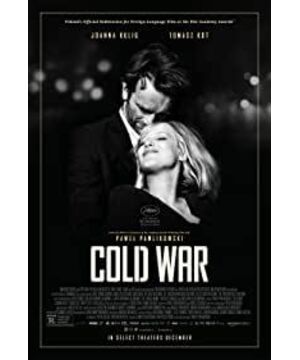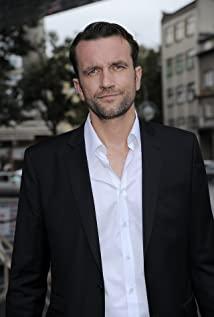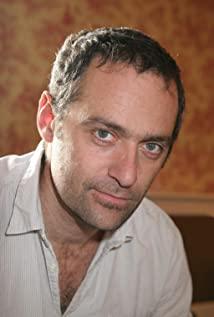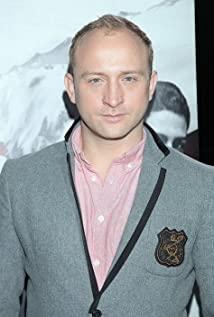Over the years, Feng Xiaogang has earned enough money and wants to return to his original self. He thought about retracing the paths of Zhang Yimou and Chen Kaige and becoming a "people's artist".
Feng Xiaogang's films are becoming less and less commercial, without Feng's humor and Feng's fashion girls.
"I'm not Pan Jinlian" is not enjoyable. Although the film directly targets China's judicial system and petition rules, it is more of a social effect. Fan Bingbing put down her figure and tried her best to be ugly, but she still did not win the most important Golden Horse Award for Best Actress.
After cooperating with his old partner Liu Zhenyun, Feng Xiaogang found Yan Geling, a more international writer living in the United States. "Youth" has greater ambitions. It's about reaping the tears of the nostalgic as well as making a breakthrough in art awards.
As we all know, the literary film "Youth" won a box office of more than 1 billion yuan, but the judges of the European Film Festival and the Golden Horse Awards did not buy it.
It was not until the advent of Polish director Pawlikowski's "Cold War" and the comparison of similar themes that everyone knew that the gap between Feng Xiaogang and European directors was like a gulf.
It is also the theme of the art troupe, and it is also a severe background of the times. "Cold War" won the best director at Cannes, and "Youth" did not even get on the red carpet at Cannes.
"Cold War" takes the crazy men and women of the art troupe as the main line, the joys and sorrows, the joys and sorrows of the little people in the big era.
After World War II, Poland was devastated and in ruins.
The male protagonist Victor is the chief pianist of the Warsaw Art Troupe. He and several colleagues went to the countryside to collect folk songs, and by the way, they dug out some good seedlings, the future Song Zuying and so on.
Zola was Victor's eye at first sight, her vigour brightening Victor's melancholy eyes.
He took her out of the country, to escape the horrific past where she had spent two years in prison for stabbing her father.
Under his care, Zola changed from an ugly duckling to a white swan and became the head of the National Song and Dance Troupe.
The two also began to fall in love, although the love was always filled with all kinds of shadows, folk music was to sing about Stalin in Moscow, and Zola was responsible for monitoring his movements.
Victor finally chose to defect, but Zola was terrified of the future and did not come as promised.
Since then, the movie has turned to the joys and sorrows of the two men and women.
She came to him. He was happy and disappointed.
He came to find her. He was expelled.
She immigrated to find him. Disappointed, leave.
He smuggled back to China to find her and went to jail. She came to see him in prison.
After he was released from prison, he watched her perform, and the two agreed to commit suicide.
This strong conflict between love and freedom is deeply touching. Freedom is precious, and love is more expensive.
Director Pawlikowski does not act as a cynic or praises the motherland, but deeply analyzes that period of history and presents the state of human struggle.
He is presenting.
He does not shy away from the post-World War II history and does not engage in historical nihilism.
After World War II, Poland lived under the iron hoof of the Soviets, without the slightest autonomy, and looked up to Moscow everywhere.
Even Polish folk music sings the praises of great leaders, although the lives of great leaders are not as long as Polish folk music.
Shadows can be seen everywhere in the film, historical figures are real, and Victor's fate has been shrouded in dark clouds.
He is fighting.
If it was filmed by Zhang Yimou, it would be "Alive", "It's better to die than to live". After experiencing the brutal beatings of society again and again, you have to smile and move forward.
If it was shot by Chen Kexin, it would be the free version of "Sweet Honey", but Maggie Cheung will not give up the realistic "bread" for Dawn, at most it's just an encounter.
Pawlikowski's hero Viktor doesn't follow social changes, but fights all the time, even sacrificing work, freedom, and the body.
In order to be free, Viktor did not spare his work in the chorus and all that he had achieved in Poland, and still decided to cross the border.
Zola is hesitant about the future and is worried about the precarious days of returning to the Polish countryside, but for love, she emigrated to France.
He is reflecting.
If it is a German film, from East Germany to West Germany, the male protagonist will definitely show his grand plans on the new stage, be proud of himself, and his life will be full of sunshine.
This is not the case with Victor in the movie. When he arrived in Paris, he was obviously a lot more decadent. He started a Polish underground club, which was far from the status of the head of the Polish Song and Dance Ensemble.
In Yugoslavia, his old colleague cocked his head and satirized him again and again, but he retained his last dignity and bought an expensive ticket to Zola's show.
Originally, people have a process of adaptation. Paris is not always at the top of the art, any musician can be like a duck, and not everyone can appreciate the talent of the hero Victor.
Such a change can make their love between Victor and Zola more valuable. Love has nothing to do with bread.
Presentation, the war of resistance, reflection, these are none of Feng Xiaogang's films.
In "Youth", Feng Xiaogang's film is full of fascination with the life of the art troupe. On the contrary, many criticisms after the reform and opening up will make you have such an illusion that life in the courtyard of the art troupe is better.
This also goes against the original intention of the screenwriter Yan Geling.
Of course, the novel "Youth" was originally created for the big screen.
Feng Xiaogang and Yan Geling had already grasped the red line of the policy, and they did not dare to touch it, let alone protest. Feng Xiaogang didn't even dare to mention the Sino-Vietnamese self-defense counterattack, so he ducked.
Writers (directors) should be the conscience of society.
Without an in-depth analysis of social ills, their works will always be fleeting glimpses, unable to impress the audience at all, not to mention the judges of the European Film Festival.
Japan's "The Family of Thieves" won the Palme d'Or. It is Hirokazu Koreeda's work that has been closely linked to Japanese social news, so that the audience can pay more attention to the human relations and social insurance in modern Japanese society, rather than seeing thieves shouting and beating.
After "The Thief Family" won the award, the Japanese government wanted to gain popularity and awarded the director Hirokazu Kore-eda a government award "People's Artist" or the like.
It was Hirokazu Kore-eda who refused, arguing that art should be kept at an appropriate distance from politics.
In contrast, Mo Yan, who won the Nobel Prize for Literature, is busy with speeches and titles, and he is very busy, but he has no new novels.
South Korea's "Parasite" won the Palme d'Or, and also won the Oscar for Best Foreign Language Film and Best Picture, and slapped Chinese filmmakers and even Chinese filmmakers loudly.
The former Zhang Yimou, Chen Kaige, Wong Kar Wai, and Ang Lee were also soft-hearted when they won awards.
The former Ang Lee didn't even want to win the second Golden Bear Award, thinking that he was tired of aesthetics.
now what?
The last time a Chinese filmmaker won the Golden Bear at the Berlin Film Festival was Diao Yinan's "Fireworks in the Daytime" in 2014
The Palme d'Or in Cannes is a mountain that Chinese filmmakers look up to, and it can no longer be reached after 1994.
Is it Feng Xiaogang? A blanket star like Fan Bingbing can't do it, and can only drift away from Cannes.
View more about Cold War reviews











